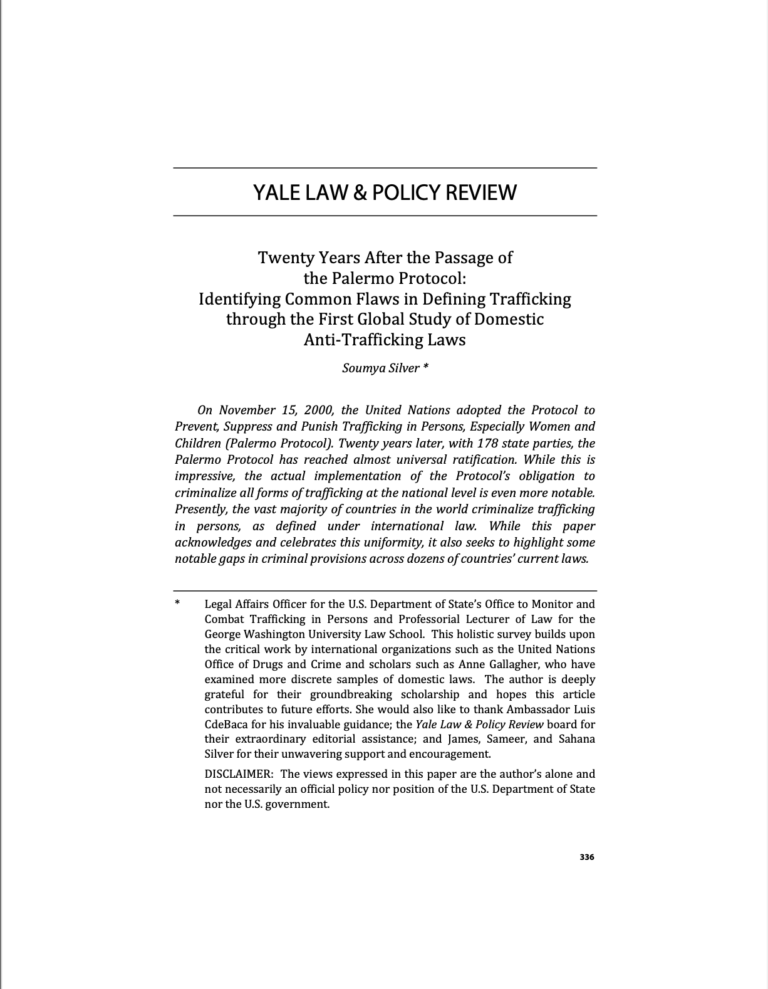On November 15, 2000, the United Nations adopted the Protocol to Prevent, Suppress and Punish Trafficking in Persons, Especially Women and Children (Palermo Protocol). Twenty years later, with 178 state parties, the Palermo Protocol has reached almost universal ratification. While this is impressive, the actual implementation of the Protocol’s obligation to criminalize all forms of trafficking at the national level is even more notable. Presently, the vast majority of countries in the world criminalize trafficking in persons, as defined under international law. While this paper acknowledges and celebrates this uniformity, it also seeks to highlight some notable gaps in criminal provisions across dozens of countries’ current laws.
Through an unprecedented review of over 300 trafficking and trafficking-related laws spanning 188 countries, this Article identifies three primary definitional inconsistencies that remain. The Article describes these trends, attempts to uncover why they exist, and ultimately explains how they can negatively affect efforts to combat trafficking in persons. By doing so, it provides the vital information necessary to guide policy and legislative reform efforts by international organizations, NGOs, and government stakeholders to achieve global consensus on the definition of trafficking in persons. This definitional consensus will truly complete the groundwork of the modern counter-trafficking in persons movement—it will be the end of the beginning, and the collective fight can continue most effectively, toward the beginning of the end.

